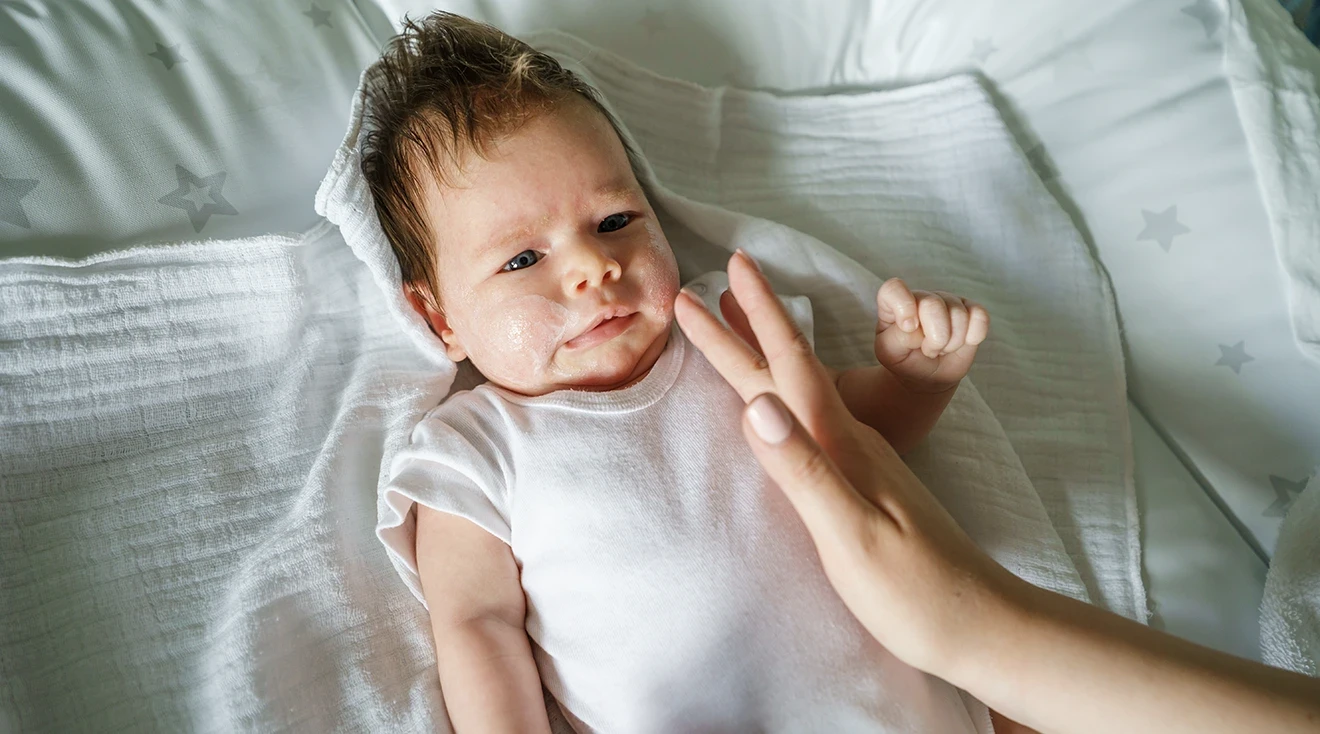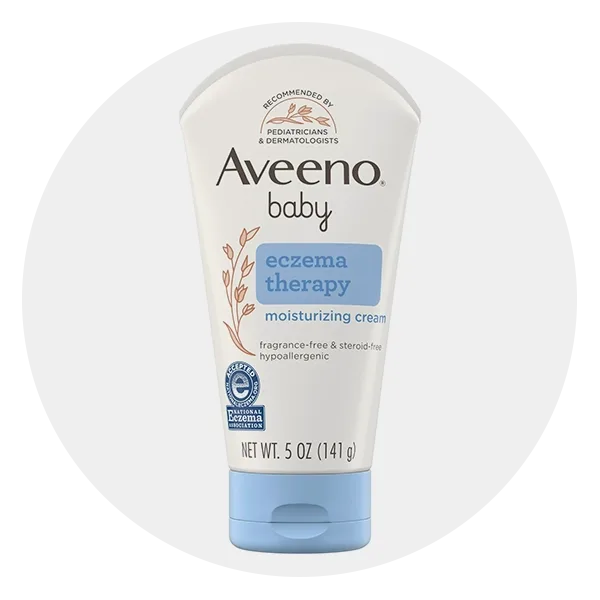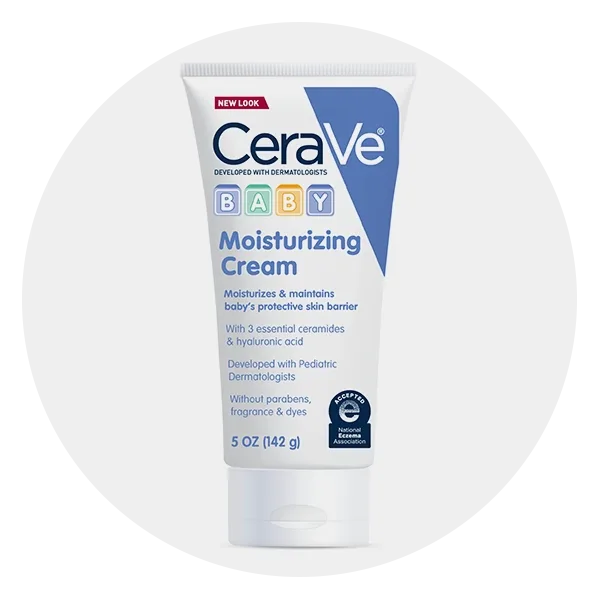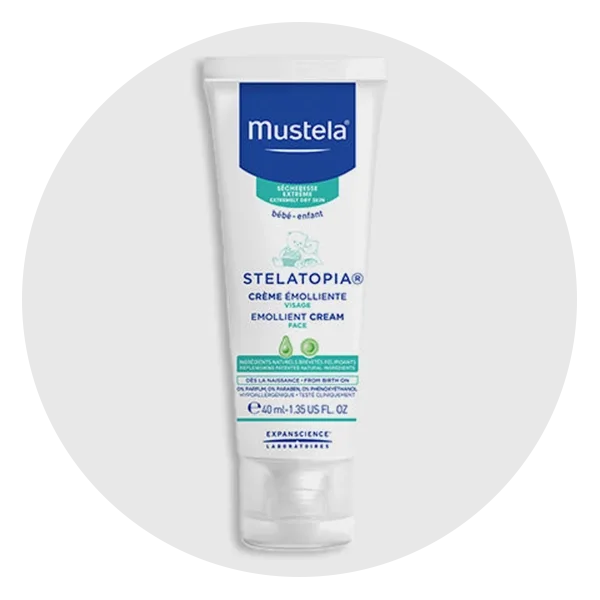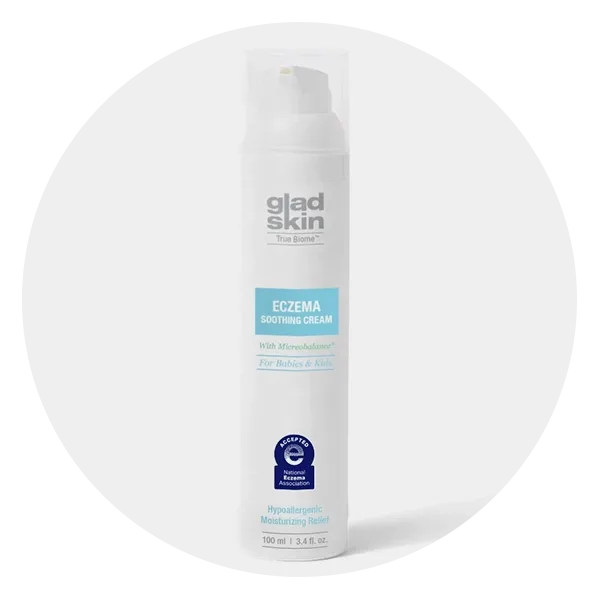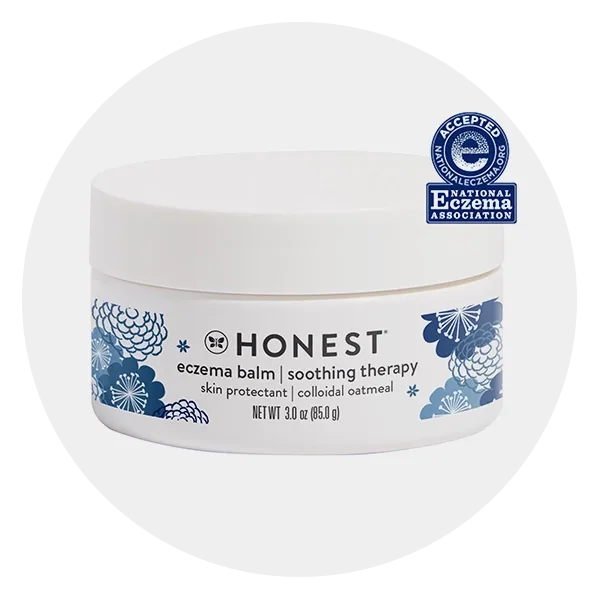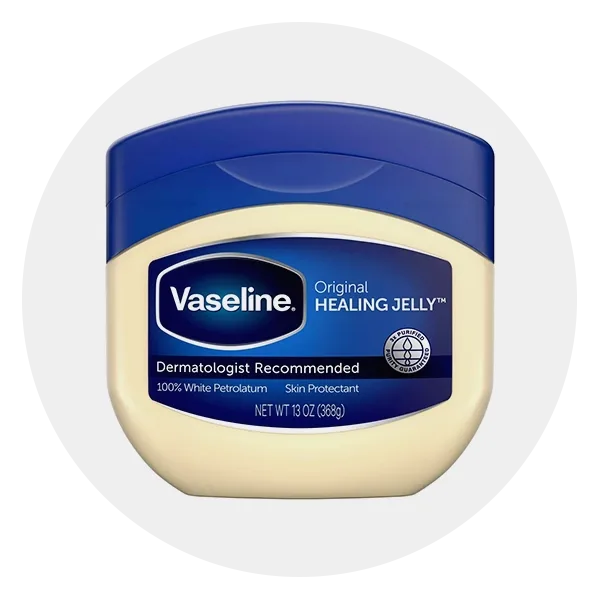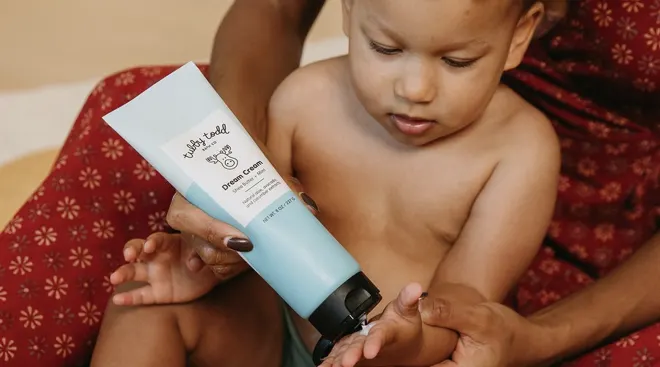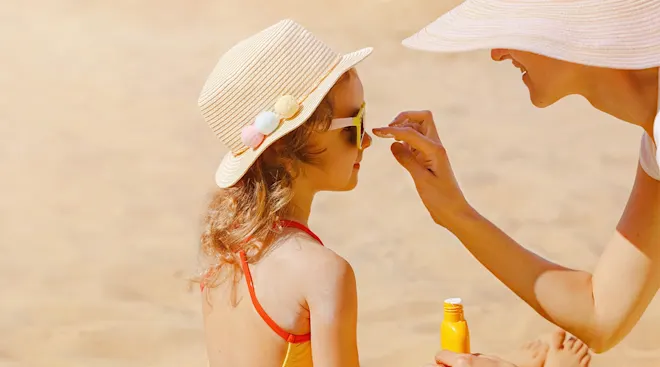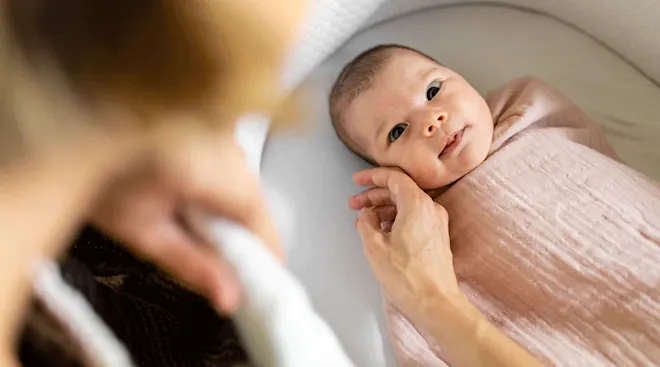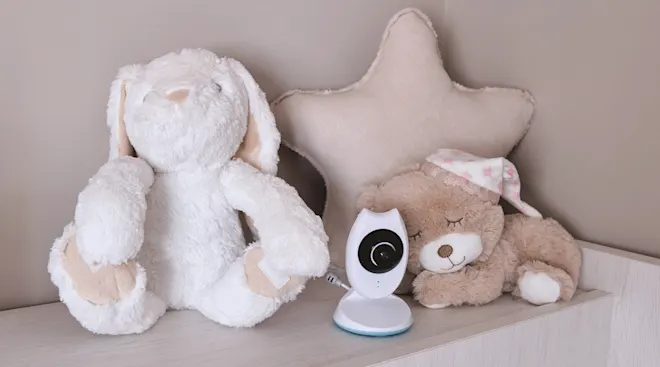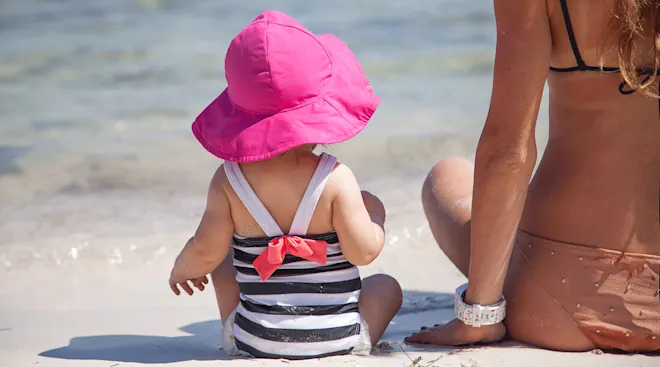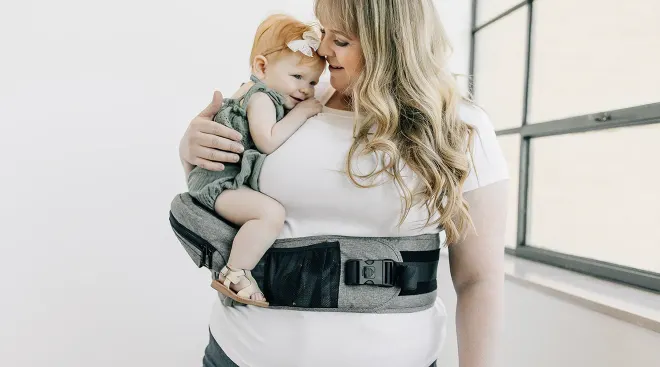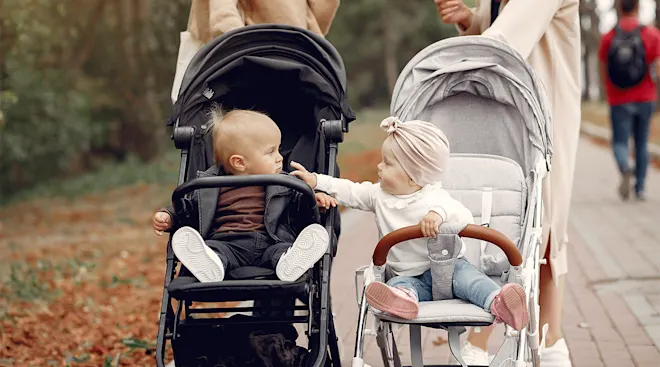The Best Baby Eczema Creams
Baby soft skin is not a given—and if your little one has dry, irritated skin it may be a sign of eczema. The skin condition is common in babies, often first appearing between 2 and 4 months of age. “Baby eczema usually shows up as dry, pink, itchy patches on the skin,” says Brittany Craiglow, MD, an assistant professor of dermatology at Yale School of Medicine. “It can affect any area of the body, but the diaper area is usually spared.”
Eczema can’t be cured, but moisturizing the skin liberally with a baby eczema cream is a good first step. “Moisturizing creams contain humectants that help to retain water in our skin and ceramides that serve to strengthen and protect the skin barrier, thus preventing the entry of allergens that can cause inflammation,” explains Pooja Rambhia, MD, a board-certified dermatologist completing a cosmetic and dermatologic surgery fellowship at UnionDerm. With that said, Rambhia recommends a multi-faceted approach to treat infant eczema. “This involves the use of gentle skin care products that do not contain fragrances or other common skin irritants, liberal use of moisturizers, and in more moderate to severe cases, dermatologist-prescribed topical anti-inflammatory ointments for exacerbations.” During flare-ups eczema cream should typically be applied twice daily. The key is using baby eczema cream strategically: Slather on a thick layer right after baby’s bath and once more during the day. If the eczema itch is interfering with baby’s sleep routine or a rash looks infected, consult your pediatrician or dermatologist who can help manage your child’s symptoms with a treatment plan and a skin maintenance routine.
But which cream is best for baby eczema? Good question. Every child is different so finding the right topical treatment can be a process of trial and error. To help you on your search we’ve gathered tips on what to look for—plus, a few of the best baby eczema creams on the market.
Baby’s health and wellness is of the utmost importance, so eczema flare-ups can cause a considerable amount of stress for the whole family. So when it comes to baby eczema cream we know you want something that actually works. And our goal is to do the bulk of the research for you, so you don’t have to spend time scrolling through online retailers. To help you find the best eczema cream for baby we took the following steps:
- We consulted two board-certified dermatologists to get the low-down on how to treat infant eczema, as well as specific ingredients to avoid in lotions and creams.
- We consulted guidelines from the American Association of Pediatrics (AAP) for more information on how to treat eczema flare-ups in children.
- We only considered products that were awarded the National Eczema Association (NEA) Seal of Acceptance.
- We leveraged our familiarity with leading baby brands to make sure items are from reliable manufacturers.
- We read user reviews to get the low-down on how these products work for families, and typically don’t consider anything with less than an average four-star rating.
Editorial integrity is at the heart of everything we publish. Read about how The Bump develops and reviews all articles, including product reviews.
Still not sure what fits the bill? Take a look at these baby eczema creams, all designed to offer sweet relief. Whether you’re looking for a basic everyday moisturizer or a heavy-duty ointment for those super-sensitive hot spots, these are the best eczema creams for babies.
Best overall baby eczema cream
- Fragrance-free
- Contains colloidal oatmeal
- Some parents dislike the natural scent
First up on our list of the best baby eczema creams is this classic choice by Aveeno. Developed by dermatologists, the star ingredient is colloidal oatmeal, which has soothing, anti-inflammatory properties. It’s enriched with vitamin B5 and the formula is free from steroids, fragrances, parabens, phthalates and phenoxyethanol. It’s thick and creamy without being greasy or tacky, making it a good all-purpose option. And, like all our picks for the best eczema creams for babies, this lotion was awarded a seal of approval from the NEA.
NEA approved: Yes | Quantity: 5 oz. | Active ingredient: Colloidal oatmeal (1%)
Best everyday baby eczema cream
- Contains ceramides and hyaluronic acid
- Fragrance-free
- Not specifically formulated for eczema
The magic ingredient in this top-rated baby eczema cream? Ceramides—aka lipids that help maintain the skin’s natural barrier. It also boasts skincare star hyaluronic acid, an ingredient that helps the skin retain moisture. Developed with pediatric dermatologists, CeraVe’s baby cream is fragrance-free, paraben-free and gentle on sensitive skin. Plus, it’s formulated to deliver up to 24 hours of soothing relief, earning it a place among the best eczema creams for babies.
NEA approved: Yes | Quantity: 5 oz. | Active ingredient: N/A
Best baby eczema face cream
- Naturally-derived ingredients
- Fragrance-free
- Clinically tested on eczema-prone skin
- High price per ounce
When it comes to extra-sensitive areas, like the face, a regular lotion won’t cut it. But this baby eczema face cream by Mustela, is up to the task thanks to a non-occlusive formula that won't sting if it accidentally gets in their eyes. It’s also packed with naturally derived moisturizers like sunflower oil and avocado, and the light, fast-absorbing texture makes it great for quick daytime applications (especially when you’re out and about). Gently massage it into baby’s cheeks, chin and nose for gentle, soothing relief you can rely on.
NEA approved: Yes | Quantity: 1.5 fl. oz. | Active ingredient: Avocado perseose
Best baby eczema cream for sensitive skin
- Fragrance-free
- Suitable for face and body
- Good option for children with an oat-allergy
- High price point
Introducing an alternative to oat-based eczema treatments: Gladskin Eczema Cream for Babies and Kids. Formulated for sensitive, eczema-prone skin this cream boasts “Micreobalance”—a smart protein that defends against bad bacteria—to restore balance to the skin and reduce irritation. It’s free from fragrance, preservatives and parabens and is an accepted treatment by the NEA. Granted, it’s expensive. But this lotion is proven to show results and is so gentle that it can be used just about anywhere on the body (yep, even sensitive areas like the eyelids).
NEA approved: Yes | Quantity: 3.4 oz. | Active ingredient: N/A
Best baby eczema balm
- Cruelty-free
- Thick ointment is good for eczema flare-ups
- USDA certified biobased product
- Slightly greasy texture
oil—this baby eczema cream soothes your little one’s sensitive skin. The thick ointment is an effective treatment for dry, flakey patches but it’s still gentle enough for daily use. It’s hypoallergenic and free of steroids, earning it a stamp of approval from dermatologists and the NEA
NEA approved: Yes | Quantity: 3 oz. | Active ingredient: Colloidal oatmeal (1%)
Best affordable baby eczema cream
- Affordable price point
- Fragrance-free
- One ingredient
- Greasy texture
One of the thickest ointments out there? Plain old petroleum jelly! It’s a dermatologist favorite for deep hydration, marking it out as one of the best eczema cream for babies. It’s triple-purified to remove irritants—plus, a thin layer moisturizes the skin and forms a protective barrier to prevent chafing. And it’s super-affordable too! The only downside? It’ll pretty much turn your babe into a slippery, greased-up watermelon. Instead of applying it all over every day, save it for hot spots or intense flare-ups.
NEA approved: Yes | Quantity: 33 oz. | Active ingredient: N/A
Not sure what to look for when choosing a baby eczema cream? Here are a few key things to look for and avoid:
- Look for products with the NEA Seal of Acceptance. In general, creams with this certification are safe bets. These products have been tested for sensitivity, irritation and toxicity and are free from ingredients on the Ecz-clusion List. (An ever-evolving list of ingredients that are known to aggravate eczema symptoms.)
- Thick formulas are best. The most effective baby eczema lotions are thick, almost greasy-feeling ointments or creams. According to the AAP, the creamier the moisturizer, the better it will work to combat the symptoms of eczema. Thinner lotions are better than nothing, but they’re not as effective at locking in moisture and restoring the skin barrier.
- Take a seasonal approach to infant eczema care. Rambhia suggests taking the climate into consideration when choosing an eczema cream for your child. “In the wintertime, I prefer ointments over creams and lotions as they provide better skin barrier protection, which is ideal given cold and dry climates. These can be swapped out for creams in the summertime to minimize the greasy feeling that thicker ointments can have in warmer and more humid climates.”
- Don’t buy fragranced products. “I tell all my parents, if you close your eyes and can recognize the scent of your child’s eczema cream—get rid of it!” says Rambhia. Why? “Fragrance can be a major irritant to skin, and when the skin is already inflamed and cracked, these irritants can worsen the existing inflammation in your child’s skin,” continues Rambhia. To avoid potential flare-ups, choose baby eczema creams and lotions that are truly fragrance free. Although Rambhia notes that many baby creams marketed as “unscented” or “fragrance-free” do in fact contain fragrance used to mask naturally-occurring odors of a product. “These fragrances are a common allergen that patients with eczema-prone skin should avoid.”
- Be wary of essential oils. Rambhia recommends steering clear of creams that contain essential oils. “While they may seem more ‘natural,’ essential oils are equally as likely as synthetic fragrances to irritate skin, particularly in those with sensitive skin.”
- Avoid alcohol-based formulas. Alcohol is commonly found in gel-based moisturizers and lotions. According to Rambhia, “alcohol-based moisturizers should also be avoided, as these can cause stinging and burning when applied to inflamed skin and can dehydrate the skin.”
- Practice gentle bathing. To get the most out of an infant eczema cream, practice gentle bathing techniques. According to Rambhia this involves limiting baths to 5 to 10 minutes in length, using lukewarm water and avoiding fragrant baby soaps.
Remember that even the best eczema cream won’t work overnight and moisturizers aren’t the end-all-be-all to eczema management. “It’s important to get your baby on a good skincare regimen that minimizes exposures to irritants and common allergens, involves gentle bathing practices, twice-daily consistent use of moisturizers, and topical corticosteroids when necessary,” explains Rambhia. If you have not noticed improvement within one to two weeks, Rambia says to evaluate the products you’re using and consider alternative formulations. And if your child’s eczema is not improving with the aforementioned treatment guidelines, or symptoms are worsening, seek the expertise and guidance of a board-certified dermatologist.
Please note: The Bump and the materials and information it contains are not intended to, and do not constitute, medical or other health advice or diagnosis and should not be used as such. You should always consult with a qualified physician or health professional about your specific circumstances.
Plus, more from The Bump:
About the writer:
Martina Garvey is an editor at The Bump, where she writes and edits e-commerce content for pregnancy, postpartum and parenting. Over an eight-year career in educational publishing and digital media, Martina has developed a keen eye for detail and robust reporting skills. As a staff member on The Bump for over three years, she leverages an in-depth knowledge of must-have baby gear and postpartum essentials alongside a passion for the latest trends to create informative content parents can trust.
Brittany Craiglow, MD, is a double-board certified pediatric dermatologist based in Fairfield, Connecticut. She earned her medical degree and is an associate professor of dermatology at the Yale School of Medicine.
Pooja H. Rambhia, MD, is a board-certified dermatologist who earned her medical degree at Case Western Reserve University. She is currently completing her American Society for Dermatologic Surgery accredited Cosmetic and Dermatologic Surgery Fellowship at UnionDerm.
National Eczema Association, The Ecz-clusion List
American Academy of Pediatrics, How to Treat & Control Eczema Rashes in Children, November 2023
Navigate forward to interact with the calendar and select a date. Press the question mark key to get the keyboard shortcuts for changing dates.

































